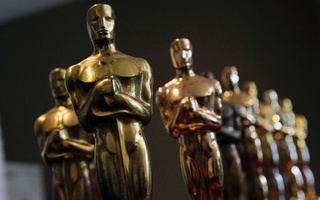It is in the middle of “Selma” that I start to think about Harvard.
Later, I will tell my friend that I am glad that the movie did not shy away from the truth of our nation’s violence, that the fact that my great-great-grandparents were kicked and beaten and gassed is a truth that needs to be spoken. She will agree, tired of suffering being minimized.
They were assaulted.
They were bludgeoned.
They were spat on.
And in the middle of “Selma,” just before I start to think about my school, I think about how powerful hate is. How brazen and wrong they were, those people who used to live in my city, who used to infest my South.
They assaulted.
They bludgeoned.
They spat.
But I know, of course, that there is nothing past tense about it at all. I know that “Selma” is nothing old and Ferguson is nothing new. I know that, and I’ve known that, and yet, there is still something antiquated about that hate.
There is a way to dress and light an actor that makes it clear that they’re playing a bigot.
If lit and clothed correctly, you can tell that said character sleeps under a Confederate flag, and that they have once in the past seven years referred to President Obama as “our monkey leader,” and that the things they say will make you very, very unhappy.
From my personal film experience, that is how Hollywood does racism. If it is not a Black Film—e.g. “Selma”, “12 Years a Slave”— where the movie is explicitly about race as it was in history, and the racists are clear-cut and evil and ignorant and behind, then it is something else, something Urban or White Saviory—e.g. “The Blind Side”—or maybe it’s something else entirely, a metaphor, it’s “Avatar” or something.
Seldom is there a film explicitly about racial consciousness— e.g. “Crash.” I don’t have any white friends who have seen “Dear White People.” Back home, I don’t have any white friends who have even heard of “Dear White People.” In these movies, racists are only slightly veiled and the audience is challenged to examine underlying racist ideologies in both the characters and themselves. But I don’t think that’s entirely right, either.
In search of a more accurate portrayal of modern-day racists, something keeps leading me back to “Song of the South,” where unmistakable racism is presented as normal and is received as such by the audience. Racism operating at a level that is acceptable to the times, commonplace enough to be unspoken and uncontested. The kind of racism that furrows its brow at you, winces in the cheeks, raises its hands slightly: “Who, me?” Racism in a movie that is not about racism and not about race and not a Black movie. Racism that is—unarguably, unapologetically—just there.
Read more in Opinion
The Unsung Heroes













